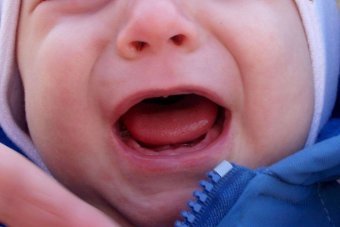Children can literally sense fear through skin contact with their parents and are impacted by violence into adulthood, the Royal Commission into Family Violence has heard.
The inquiry began on Monday and is continuing today with a focus on how domestic violence affects children.
Social worker and family therapist Doctor Robyn Miller said children literally sensed fear through skin contact with parents.
“Children and very young babies can sense the fear in their parent and that has a profound impact … the relationship between the baby and the child’s primary carer, usually the mother, is critical to that child’s development,” she said.
“If the mother is being hurt, the baby — even though it may have been in a different room — will be impacted by the experience of the mother, who is likely to be in shock, experiencing fear, and if it’s an ongoing state, where the violence is embedded in the relationship, that cannot but impact on the baby.
“So children they can smell fear, they sense it literally through the skin contact.”
She said children were particularly wired to “read the non-verbal cues of their parents” and could sense signs of violence.
“I think we need to put aside that children are somehow passive witnesses or that they’re not impacted if they’re not directly exposed — they are,” Dr Miller said.
Director of the Centre for Women’s Mental Health at the Royal Women’s Hospital Professor Louise Newman said exposure to “high levels of on-going threat and violence” from birth to age four could affect brain development.
“We know that being in situations — particularly if they’re prolonged and ongoing … of fear and terror is associated with a very big physical stress response, with the release of stress-related hormones,” she said.
“Those hormones can have a direct impact on the developing brain — the brain when it is developing so quickly during the early years is very sensitive to those sorts of hormones and what we do know from studies … is that the brain can literally be changed by the impact of those stress-related hormones.
Professor Newman said childhood trauma could continue to impact some children into adulthood.
“Children who experience these degrees of trauma, can have a brain that remains very sensitive to the effects of any later trauma, and less efficient at dealing with stress and trauma,” she said.
“So it really sets up a vulnerable brain.”
She told the inquiry it was unclear how children exposed to “less severe” situations were affected because it had not been extensively studied, but there was “no known safe level of violence or traumatic exposure in children”.
Services for at-risk pregnant women, children
Professor Newman said pregnant women in stressful situations released hormones which could cross the placenta and impact the baby in utero.
“The babies have been followed, and those babies can have growth problems, both in their nervous system and brain but [can] also be small, and so are potentially very vulnerable in terms of their ongoing development,” she said.
“That means it’s very important that we look at better identification of women who might be in those high-risk situations during pregnancy.”
Counsel assisting Mark Moshinsky told the hearing the commission heard there were not enough services for children and young people.
He said there were waiting lists of up to six months.
“Specific mention was made of the lack of child psychologists, limited access to therapeutic services for children and young people, the lack of alcohol and drug services, and the lack of detox programs for children aged under 14,” he said.

